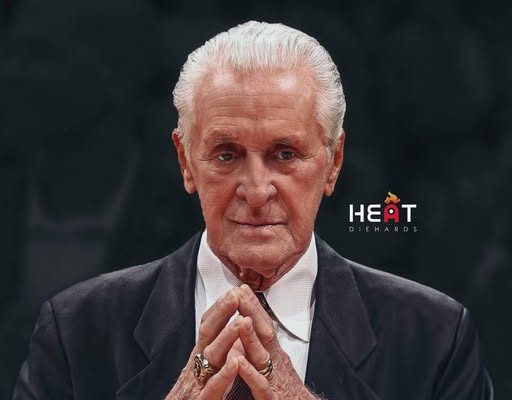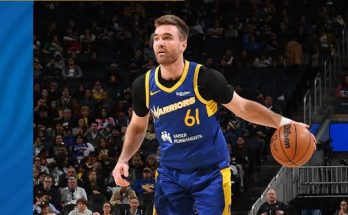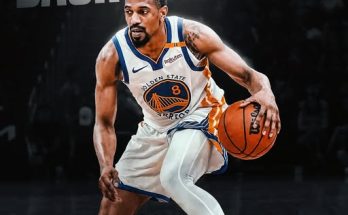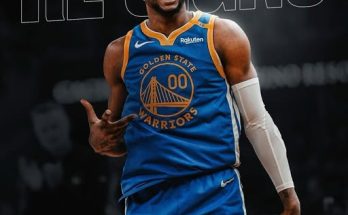The Miami Heat have long been known for their calculated, patient approach to team-building, often avoiding the splashy, headline-grabbing moves in favor of strategic, under-the-radar improvements. This offseason has been no different. While some fans may have hoped for a blockbuster trade or a high-profile point guard signing, the Heat’s front office has once again demonstrated why their methodical strategy has kept them in championship contention year after year. According to Bleacher Report, Miami “quietly crushed” the offseason, reinforcing their roster without sacrificing future flexibility or making impulsive decisions that could backfire.
One of the most notable aspects of Miami’s offseason has been their restraint. In an era where teams often rush to make big swings—sometimes out of desperation—the Heat have remained disciplined. They didn’t panic and overpay for a star who might not fit their culture, nor did they sacrifice valuable draft capital in a risky win-now move. Instead, they focused on incremental upgrades, maintaining financial flexibility, and preserving assets for the right opportunity. This approach may not generate the same excitement as a superstar signing, but it’s one that has consistently kept Miami competitive in the long run.
The Heat’s biggest roster need entering the offseason was at point guard. With Kyle Lowry’s decline and Gabe Vincent’s departure last summer, many expected Miami to aggressively pursue a solution. Names like Damian Lillard and Trae Young were floated as potential targets, but the Heat wisely avoided forcing a trade that would have required gutting their roster or giving up multiple first-round picks. Instead, they opted for a more measured approach, re-signing Patty Mills for veteran depth and banking on internal development from young guards like Terry Rozier, who was acquired midseason last year. While Rozier isn’t a traditional floor general, his scoring ability and experience make him a viable option in the backcourt alongside Tyler Herro and Duncan Robinson.
Beyond the point guard position, Miami made several underrated moves that have strengthened their overall depth. The re-signing of Kevin Love provides invaluable veteran leadership, floor spacing, and rebounding off the bench. Love’s ability to stretch the floor as a big man remains a perfect fit alongside Bam Adebayo, and his presence in the locker room is an intangible asset for a team that prioritizes culture. Additionally, the Heat retained Haywood Highsmith, a versatile wing defender who has steadily improved and can guard multiple positions—a crucial skill in today’s NBA.
Perhaps the most intriguing addition is first-round pick Kel’el Ware, a 7-foot center out of Indiana. While rookie big men often take time to develop, Ware’s combination of size, athleticism, and shooting potential gives Miami another long-term piece to develop. He may not contribute immediately, but his upside aligns with the Heat’s track record of player development. If Ware can refine his game under Miami’s coaching staff, he could become a valuable rotation piece in the coming years.
Another subtle but significant move was the signing of Alec Burks, a proven scorer and shooter who adds another layer of offensive firepower to Miami’s second unit. Burks may not be a household name, but his ability to create his own shot and knock down threes provides the Heat with much-needed bench scoring—something they lacked at times last season. His veteran presence and playoff experience (including a stint with the Knicks) make him a low-risk, high-reward addition.
Of course, the biggest factor in Miami’s success next season will be the health and performance of their core. Jimmy Butler, Bam Adebayo, and Tyler Herro form one of the most dynamic trios in the Eastern Conference when healthy. Butler, despite entering his mid-30s, remains one of the most clutch performers in the league, and Adebayo continues to evolve as a two-way force. Herro, meanwhile, has shown flashes of stardom but needs to stay on the court consistently. If these three can stay healthy and maintain their high level of play, the Heat will once again be a dangerous playoff team.
The Heat’s flexibility moving forward cannot be overstated. By avoiding long-term, bloated contracts, they’ve kept their books clean enough to make a major move when the right opportunity arises. Whether it’s a disgruntled star becoming available midseason or a 2025 free agency splash, Miami has positioned itself to pivot quickly if a game-changing player hits the market. This patience has been a hallmark of the Pat Riley-era Heat, and it’s a big reason why they’ve remained relevant for so long.
Critics might argue that Miami’s lack of a true point guard or a second superstar could hinder their championship aspirations, and there’s some validity to that concern. In a league dominated by elite playmakers and superstar duos, the Heat’s reliance on Butler to carry the offensive load in the playoffs is a risky proposition. However, their depth, coaching, and culture have proven to be difference-makers in the past. Erik Spoelstra’s ability to maximize his roster’s potential is unmatched, and the Heat’s system has consistently allowed them to outperform expectations.
Ultimately, the Heat’s offseason shouldn’t be judged by the moves they didn’t make, but by the ones they did. They avoided desperation trades, added quality depth, and maintained future flexibility—all while keeping their core intact. In a league where hasty decisions often lead to long-term setbacks, Miami’s disciplined approach is a refreshing reminder that sometimes the best moves are the ones you don’t make.
As Bleacher Report noted, the Heat are “deeper, more dynamic, and more flexible” than they were last season. That’s not just a minor improvement—it’s a testament to their front office’s vision. While they may not be the favorites in the East, counting out the Heat is always a mistake. Their ability to develop talent, adapt to challenges, and compete at the highest level makes them a perennial threat. And if the right star becomes available down the line, Miami will be ready to pounce. Until then, they’ve done exactly what they needed to do: build a roster that can compete now without sacrificing the future. That’s not just a successful offseason—it’s a masterclass in team-building.



